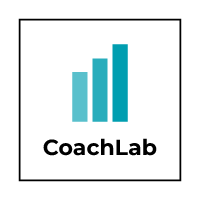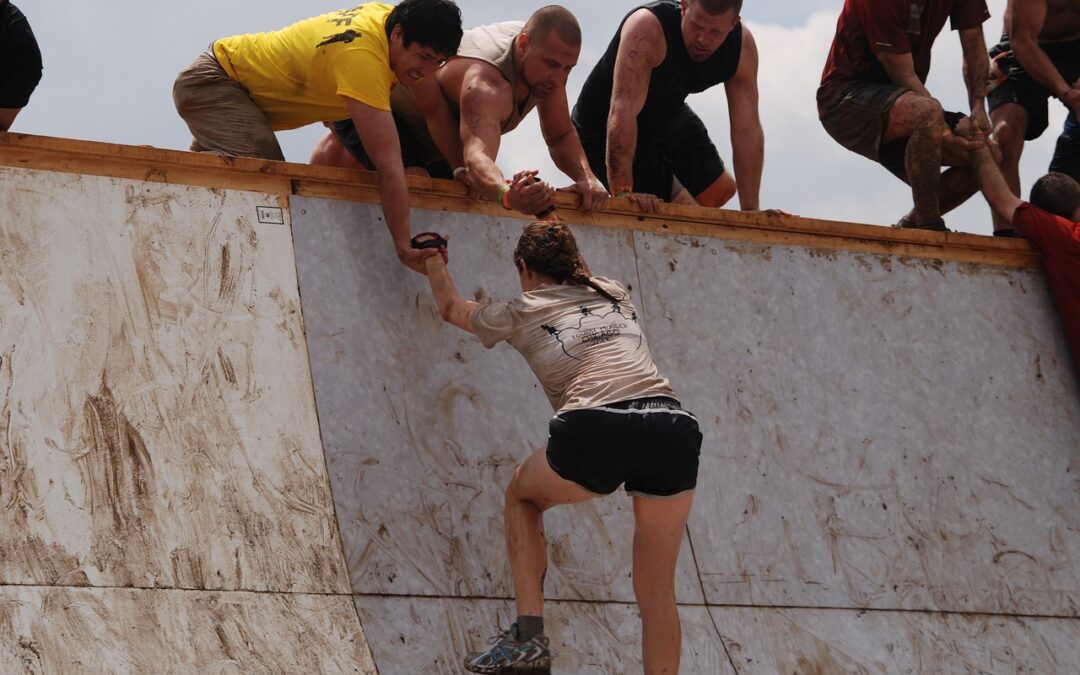The art of self-actualisation: how to achieve your dreams through coaching #1
Introduction
The concept of self-actualisation has long been a preoccupation of humanity. But what does it really mean and how can we achieve it? In this article we will not only answer this question, but also show how coaching can be a key tool on the path to self-actualisation.
Self-actualisation is essentially the process by which an individual realises and develops his or her full potential, realising his or her dreams and goals, while living in harmony with himself or herself and the environment. It is not an end goal, but a lifelong journey of continuous development and growth.
The coaching has played an invaluable role in this process. A skilled coach not only provides support and motivation, but also helps to identify goals, develop strategies and overcome obstacles. A CoachLab's team of experts helps you to do just that: we support you on your path to fulfilment with a personalised approach.
The aim of this article is to give a comprehensive overview of the process of self-actualization, its psychological background, its importance in the modern world, and to show how to effective coaching to help you achieve our goals. We will guide you through the self-awareness from development, through objective and strategy setting, to sustaining results.
The psychological background of self-actualisation
Az önmegvalósítás koncepciója mélyen gyökerezik a pszichológia tudományában. Három megközelítést emelünk ki, amelyek jelentősen hozzájárultak a fogalom megértéséhez és fejlődéséhez.
Maslow's hierarchy of needs (Maslow-Pirmais)
Abraham Maslow, a humanisztikus pszichológia egyik úttörője alkotta meg a szükségletek hierarchiáját, amelynek csúcsán az önmegvalósítás áll. Elmélete szerint az embereknek először az alapvető fiziológiai és biztonsági szükségleteiket kell kielégíteniük, majd a szeretet és megbecsülés iránti igényeiket, mielőtt elérkeznének az önmegvalósítás szintjére.
Maslow szerint az önmegvalósító emberek jellemzői:
- Realitásorientáltak
- Problémaközpontúak
- Kreatívak
- Függetlenek
- Autonómok
- Mély kapcsolatokat ápolnak másokkal
- Csúcsélményeket élnek át
A CoachLab coachai segítenek ügyfeleinknek azonosítani, hol állnak a szükséglethierarchiában, és támogatják őket abban, hogy az önmegvalósítás felé haladjanak.
The theory of Carl Rogers
Carl Rogers, a személy-központú terápia megalkotója, az önmegvalósítást az „aktualizáló tendencia” fogalmával írta le. Szerinte minden emberben megvan a veleszületett hajlam a növekedésre és a fejlődésre.
Rogers elméletének kulcselemei:
- Feltétel nélküli pozitív elfogadás
- Empathy
- Kongruencia (hitelesség)
Ezek az elemek nem csak a terápiában, hanem a coachingban is kulcsfontosságúak. A CoachLab szakemberei ezeket az elveket alkalmazzák, hogy biztonságos és támogató környezetet teremtsenek ügyfeleink számára, ahol szabadon feltárhatják és megvalósíthatják valódi énjüket.
Contemporary psychological approaches
A modern pszichológia számos új megközelítést hozott az önmegvalósítás terén:
- Pozitív pszichológia: Martin Seligman munkássága nyomán ez az irányzat az erősségekre és a pozitív élményekre összpontosít, elősegítve a virágzást és a jóllétet.
- Mindfulness: A tudatos jelenlét gyakorlása segít az önismeret mélyítésében és a stressz kezelésében.
- Érzelmi intelligencia: Daniel Goleman munkája rávilágított az érzelmi kompetenciák fontosságára az önmegvalósításban.
- Flow-elmélet: Csíkszentmihályi Mihály koncepciója a tökéletes élményről új perspektívát ad az önmegvalósításra.
A CoachLab coachai folyamatosan képzik magukat ezekben a modern megközelítésekben, hogy a leghatékonyabb támogatást nyújthassák ügyfeleiknek.
Az önmegvalósítás pszichológiai háttere rávilágít arra, hogy ez egy komplex és sokrétű folyamat. A következő részben azt vizsgáljuk meg, miért is olyan fontos az önmegvalósítás a modern világban, és hogyan kapcsolódik a karrierfejlődéshez és az életminőséghez.
The importance of self-actualisation in the modern world
Social and cultural context
A 21. században az önmegvalósítás kérdése talán fontosabb, mint valaha. A gyorsan változó társadalmi és technológiai környezet új kihívások elé állít bennünket, miközben számos új lehetőséget is teremt.
- Információs társadalom: A tudás és az információ könnyű hozzáférhetősége lehetővé teszi, hogy bárki fejleszthesse magát, ugyanakkor a túl sok információ között nehéz lehet eligazodni.
- Globalizáció: A világ „összezsugorodása” új karrierlehetőségeket teremt, de növeli a versenyt is.
- Értékváltozás: A materiális értékek mellett egyre nagyobb hangsúlyt kap az önkifejezés és a personal development.
- Munka természetének változása: A rugalmas munkavégzés és a szabadúszó életforma új lehetőségeket, de új kihívásokat is jelent az önmegvalósítás szempontjából.
A CoachLab coachai segítenek ügyfeleinknek navigálni ebben a komplex környezetben, megtalálni saját útjukat és értékeiket.
The relationship between career development and self-actualisation
A karrierünk gyakran az önmegvalósítás egyik legfontosabb terepe. A modern munkaerőpiacon már nem elég egyszerűen „dolgozni” – az emberek egyre inkább olyan karriert keresnek, amely összhangban van értékeikkel és szenvedélyeikkel.
- Hivatástudat: Sokan keresik azt a munkát, ami nem csak megélhetést biztosít, hanem értelmet és elégedettséget is ad.
- Készségfejlesztés: A folyamatos tanulás és fejlődés kulcsfontosságúvá vált a sikeres karrierhez.
- Vezetői szerepek: Az önmegvalósítás gyakran vezető pozíciókban teljesedik ki, ahol nagyobb hatást gyakorolhatunk környezetünkre.
- Vállalkozói szellem: Egyre többen választják az önálló vállalkozás útját, ami teret ad a kreativitásnak és az önmegvalósításnak.
A CoachLab karriercoaching szolgáltatása segít ügyfeleinknek megtalálni azt a karrierutat, amely összhangban van személyes céljaikkal és értékeikkel.
Personal satisfaction and quality of life
Az önmegvalósítás közvetlen kapcsolatban áll az életminőséggel és a személyes elégedettséggel. Amikor összhangban vagyunk önmagunkkal és céljainkkal, az élet minden területén pozitív változásokat tapasztalhatunk.
- Mental health: Az önmegvalósítás folyamata növeli az önbecsülést és csökkenti a stresszt és a szorongást.
- Kapcsolatok minősége: Az önmagunkkal harmóniában élő emberek általában jobb és mélyebb kapcsolatokat alakítanak ki másokkal.
- Teljesítmény: Az önmegvalósítás útján járó emberek gyakran kreatívabbak és produktívabbak.
- Reziliencia: A saját útjukat járó egyének általában jobban kezelik a nehézségeket és a változásokat.
A CoachLab holisztikus megközelítése segít ügyfeleinknek nem csak a karrierjükben, hanem életük minden területén elérni a kívánt egyensúlyt és elégedettséget.
Obstacles to self-actualisation
Bár az önmegvalósítás rendkívül fontos, az út gyakran nem könnyű. Számos akadállyal kell szembenéznünk, amelyek hátráltathatnak céljaink elérésében.
Internal barriers
A legtöbb ember számára a legnagyobb akadályok saját elméjükben rejlenek:
- Félelmek: A kudarctól, a változástól vagy a sikertől való félelem mind gátolhatja az előrehaladást.
- Bizonytalanság: Az self-confidence hiánya vagy a „nem vagyok elég jó” gondolata gyakran akadályozza az önmegvalósítást.
- Negatív önkép: Ha nem hiszünk magunkban és képességeinkben, nehéz lesz elérni céljainkat.
- Perfekcionizmus: A tökéletesség hajszolása gyakran megbénítja a cselekvést.
- Önsabotázs: Tudatalatti szinten néha mi magunk akadályozzuk saját sikerünket.
A CoachLab coachai specializálódtak ezeknek a belső gátaknak a feloldására, segítve ügyfeleinket abban, hogy felülkerekedjenek félelmeiken és korlátaikon.
External barriers
A belső gátakon túl számos külső tényező is nehezítheti az önmegvalósítást:
- Társadalmi elvárások: A család, a barátok vagy a társadalom nyomása eltéríthet minket valódi céljainkból.
- Anyagi korlátok: A pénzügyi nehézségek gyakran korlátozzák lehetőségeinket.
- Időhiány: A modern élet rohanó tempója mellett nehéz lehet időt szakítani az önfejlesztésre.
- Oktatási és képzési lehetőségek hiánya: Nem mindenki fér hozzá könnyen a szükséges tudáshoz és készségekhez.
- Munkahelyi környezet: Egy nem támogató vagy toxikus munkakörnyezet gátolhatja a fejlődést.
A CoachLab szakemberei segítenek ügyfeleinknek azonosítani ezeket a külső akadályokat, és stratégiákat dolgoznak ki velük együtt azok leküzdésére.
Time management challenges
Az idő megfelelő kezelése kulcsfontosságú az önmegvalósítás szempontjából:
- Prioritások meghatározása: Sokszor nehéz eldönteni, mire fordítsuk korlátozott időnket.
- Halogatás: A fontos, de nem sürgős feladatok gyakran háttérbe szorulnak.
- Multitasking csapdája: Bár úgy tűnhet, hogy több dolgot egyszerre végezve hatékonyabbak vagyunk, ez gyakran az ellenkezőjét eredményezi.
- Work-life balance: A munka és a magánélet közötti egyensúly megtalálása komoly kihívást jelenthet.
- Túlterheltség: A túl sok vállalás stresszhez és kiégéshez vezethet.
A CoachLab időmenedzsment workshopjai és személyre szabott coaching programjai segítenek ügyfeleinknek hatékonyabban kezelni idejüket, hogy az önmegvalósításra is jusson energia.
Az akadályok felismerése és megértése az első lépés azok leküzdése felé. A következő részben azt vizsgáljuk meg, hogyan lehet a coaching eszköztárát felhasználni az önmegvalósítás elősegítésére.
Coaching as a tool for self-realisation
The coaching egy rendkívül hatékony módszer az önmegvalósítás támogatására. De pontosan mi is a coaching, és hogyan segíthet nekünk céljaink elérésében?
Definition and principles of coaching
The coaching egy olyan folyamat, amely során egy képzett szakember (a coach) támogatja az ügyfelet (coachee) személyes vagy szakmai céljai elérésében. A coaching nem tanácsadás vagy terápia, hanem egy olyan partnerség, amelyben a coach kérdésekkel, visszajelzésekkel és eszközökkel segíti az ügyfelet saját megoldásai megtalálásában.
A coaching alapelvei:
- Az ügyfél rendelkezik a szükséges erőforrásokkal céljai eléréséhez.
- A coach nem ad tanácsot, hanem segít az ügyfélnek saját válaszai megtalálásában.
- A coaching jövőorientált és megoldásközpontú.
- A coaching folyamat strukturált, de rugalmas.
- A coach és az ügyfél közötti bizalom és nyílt kommunikáció elengedhetetlen.
A CoachLab szakemberei ezeket az alapelveket követve dolgoznak ügyfeleikkel, biztosítva a lehető leghatékonyabb támogatást az önmegvalósítás útján.
Different coaching approaches
A coachingnak számos különböző megközelítése létezik, amelyek mind hasznosak lehetnek az önmegvalósítás különböző aspektusaiban:
- Life coaching: Segít az élet minden területén egyensúlyt és elégedettséget találni.
- Karriercoaching: Támogatja a szakmai célok meghatározását és elérését.
- Business coaching: Vállalkozóknak és vezetőknek nyújt támogatást céljaik elérésében.
- Teljesítménycoaching: Segít maximalizálni a teljesítményt egy adott területen.
- Transzformációs coaching: Mélyreható személyes változásokat támogat.
A CoachLab változatos coaching megközelítéseket alkalmaz, mindig az ügyfél egyedi igényeihez és céljaihoz igazodva.
The role of the coach in the process of self-realisation
Egy jó coach kulcsfontosságú partner lehet az önmegvalósítás útján. A coach szerepe többrétű:
- Tükör: Objektív visszajelzést ad, segítve az ügyfelet önmaga jobb megértésében.
- Kihívó: Kérdéseivel és feladataival arra ösztönzi az ügyfelet, hogy kilépjen a komfortzónájából.
- Támogató: Bátorítást és motivációt nyújt a nehéz pillanatokban.
- Elszámoltató: Segít az ügyfélnek felelősséget vállalni céljaiért és cselekedeteikért.
- Eszköztár: Különböző technikákat és módszereket biztosít a fejlődéshez.
- Facilitátor: Segíti az ügyfelet saját megoldásai és válaszai megtalálásában.
A CoachLab coachai mind ezekben a szerepekben járatosak, és rugalmasan alkalmazzák őket az ügyfelek igényei szerint.
Developing self-awareness through coaching
Az önmegvalósítás útján az első és talán legfontosabb lépés az önismeret fejlesztése. A coaching folyamat során számos eszközt és technikát alkalmazunk ennek érdekében.
Mapping personality types and strengths
A személyiségünk és erősségeink megértése kulcsfontosságú az önmegvalósításhoz. A coaching során különböző eszközöket használunk erre:
- MBTI (Myers-Briggs Type Indicator): Segít megérteni a gondolkodási és viselkedési preferenciáinkat.
- DISC profil: A viselkedési stílusunkat és kommunikációs preferenciáinkat térképezi fel.
- VIA Character Strengths: Azonosítja a legfőbb karaktererősségeinket.
- Gallup CliftonStrengths: Részletes képet ad a tehetségeinkről és erősségeinkről.
A CoachLab coachai szakértők ezeknek az eszközöknek az alkalmazásában és értelmezésében, segítve ügyfeleinket önmaguk mélyebb megértésében.
Identifying values and motivations
Értékeink és motivációink megértése elengedhetetlen az önmegvalósításhoz. A coaching folyamat során különböző gyakorlatokat és technikákat alkalmazunk ezek feltárására:
- Értékleltár: Segít azonosítani és rangsorolni legfontosabb értékeinket.
- Motivációs térkép: Feltárja, mi hajt minket igazán.
- „Miért?” gyakorlat: Mélyebb megértést nyújt céljaink mögöttes okairól.
- Életkerék: Átfogó képet ad életünk különböző területeiről és elégedettségünkről.
A CoachLab coachai segítenek ügyfeleinknek összhangba hozni céljaikat és tetteiket valódi értékeikkel és motivációikkal.
Developing life goals and vision
Az önmegvalósítás folyamatában kulcsfontosságú, hogy legyen egy világos jövőképünk és konkrét életcéljaink. A coaching segít ezek megfogalmazásában és finomításában:
- Vizualizációs gyakorlatok: Segítenek elképzelni és „megélni” a kívánt jövőt.
- Célhierarchia kialakítása: Segít a nagy álmokat konkrét, elérhető célokra bontani.
- „Ideális nap” gyakorlat: Részletesen leírjuk, hogyan néz ki egy tökéletes napunk a jövőben.
- Élettérkép készítése: Vizuálisan ábrázoljuk életünk különböző aspektusait és céljait.
A CoachLab coachai tapasztaltak abban, hogy segítsenek ügyfeleinknek inspiráló, de reális jövőképet és célokat kialakítani.
Az önismeret fejlesztése után a következő lépés a konkrét célok kitűzése és a stratégia kialakítása. A következő részben ezt fogjuk részletesen tárgyalni.
Goal setting and strategy development in coaching
The önismeret fejlesztése után a következő kulcsfontosságú lépés az önmegvalósítás útján a konkrét célok meghatározása és a hozzájuk vezető stratégia kidolgozása. A coaching folyamat során különös hangsúlyt fektetünk erre a területre.
Setting SMART targets
A hatékony célkitűzés egyik legismertebb módszere a SMART kritériumrendszer alkalmazása vagy akár a GROW Modell. A CoachLab coachai segítenek ügyfeleiknek olyan célokat megfogalmazni, amelyek:
- Specifikusak (Specific): Pontosan meghatározott, konkrét célok.
- Mérhetőek (Measurable): Olyan célok, amelyek előrehaladása nyomon követhető.
- Elérhetőek (Achievable): Kihívást jelentenek, de reálisan megvalósíthatóak.
- Relevánsak (Relevant): Összhangban vannak az értékeinkkel és hosszú távú terveinkkel.
- Időhöz kötöttek (Time-bound): Van konkrét határidejük.
Példa egy SMART célra: „Az elkövetkező 6 hónapban hetente legalább 3 alkalommal 30 percet fogok meditálni, hogy javítsam a stresszkezelési képességeimet és növeljem a koncentrációmat.”
Preparing an action plan
Miután meghatároztuk a célokat, a következő lépés egy részletes akcióterv kidolgozása. A CoachLab coachai segítenek ügyfeleiknek olyan terveket készíteni, amelyek:
- Lebontják a nagy célokat kisebb, kezelhetőbb lépésekre.
- Meghatározzák a szükséges erőforrásokat (idő, pénz, készségek).
- Azonosítják a potenciális akadályokat és kidolgozzák a leküzdésükhöz szükséges stratégiákat.
- Rugalmasak és alkalmazkodóképesek a változó körülményekhez.
Az akcióterv készítése során gyakran használunk olyan eszközöket, mint a Gantt-diagram vagy a kanban tábla, hogy vizuálisan is megjelenítsük a teendőket és a határidőket.
Defining milestones and success criteria
A hosszú távú célok elérése során fontos, hogy legyenek köztes állomások, amelyek jelzik az előrehaladást és motivációt adnak a folytatáshoz. A coaching folyamat során segítünk ügyfeleinknek:
- Meghatározni a kulcsfontosságú mérföldköveket a cél felé vezető úton.
- Kidolgozni a sikerkritériumokat minden egyes mérföldkőhöz.
- Megtervezni a mérföldkövek elérésének ünneplését, ami fontos a motiváció fenntartásában.
- Rendszeres felülvizsgálati pontokat beiktatni, ahol értékelhetik az előrehaladást és szükség esetén módosíthatják a tervet.
Például, ha valakinek az a célja, hogy egy éven belül saját vállalkozást indítson, a mérföldkövek között szerepelhet az üzleti terv elkészítése, a finanszírozás megszerzése, a jogi háttér biztosítása, stb.
A CoachLab coachai tapasztaltak abban, hogy segítsenek ügyfeleiknek reális, de motiváló mérföldköveket és sikerkritériumokat meghatározni.
Skills development for self-fulfilment
Az önmegvalósítás útján gyakran szükség van bizonyos készségek fejlesztésére vagy új képességek elsajátítására. A coaching folyamat során azonosítjuk ezeket a területeket és kidolgozzuk a fejlesztési stratégiát.
Communication skills
A hatékony kommunikáció kulcsfontosságú mind a személyes, mind a szakmai életben. A CoachLab coaching process során gyakran dolgozunk olyan területeken, mint:
- Aktív hallgatás: Megtanulni teljes figyelemmel hallgatni és megérteni másokat.
- Asszertív kommunikáció: Képesség saját igényeink és véleményünk kifejezésére mások jogainak tiszteletben tartása mellett.
- Nonverbális kommunikáció: A testbeszéd és más nem szóbeli jelzések tudatos használata és értelmezése.
- Prezentációs készségek: Képesség gondolataink hatékony átadására nagyobb közönség előtt.
Ezeket a készségeket gyakorlatok, szerepjátékok és visszajelzések segítségével fejlesztjük a coaching ülések során.
Time management techniques
Az idő hatékony kezelése elengedhetetlen az önmegvalósításhoz. A coaching folyamat során olyan technikákat sajátíthatnak el ügyfeleink, mint:
- Eisenhower-mátrix: Segít a feladatok priorizálásában sürgősségük és fontosságuk alapján.
- Pomodoro technika: Növeli a koncentrációt és a produktivitást strukturált munka- és pihenőidőszakok alkalmazásával.
- Időblokkolás: A nap előre tervezése és feladatokra való felosztása.
- „Eat the frog” módszer: A legnehezebb feladat elvégzése a nap elején.
A CoachLab coachai segítenek ügyfeleinknek megtalálni és elsajátítani azokat az időmenedzsment technikákat, amelyek legjobban illeszkednek az életstílusukhoz és céljaikhoz.
Stress management and resilience
Az önmegvalósítás útja gyakran kihívásokkal és stresszel jár. Ezért fontos, hogy fejlesszük stresszkezelési képességeinket és növeljük rezilienciánkat. A coaching folyamat során olyan technikákat tanítunk, mint:
- Mindfulness meditáció: Segít a jelen pillanatra koncentrálni és csökkenteni a stresszt.
- Kognitív átkeretezés: Megváltoztatja a stresszes helyzetekhez való hozzáállásunkat.
- Progresszív izomrelaxáció: Fizikai technika a stress csökkentésére.
- Reziliencia építése: A kudarc és a változás kezelésének képessége.
A CoachLab coachai személyre szabott stresszkezelési stratégiákat dolgoznak ki ügyfeleikkel, figyelembe véve egyéni helyzetüket és preferenciáikat.
A készségfejlesztés folyamatos munka, amely nem ér véget a coaching folyamat lezárultával. A következő részben azt vizsgáljuk meg, hogyan lehet nyomon követni az önmegvalósítás útját és kezelni az útközben felmerülő kihívásokat.
Following the path to self-realisation
Az önmegvalósítás nem egy egyszeri esemény, hanem egy folyamatos utazás. Fontos, hogy rendszeresen értékeljük az előrehaladásunkat és szükség esetén módosítsuk a terveinket.
Regular self-reflection and evaluation
A CoachLab coachai segítenek ügyfeleiknek kialakítani egy rendszeres önreflexiós gyakorlatot. Ez magában foglalhatja:
- Napi journaling: Rövid feljegyzések készítése a nap eseményeiről, gondolatokról és érzésekről.
- Heti értékelés: Az elmúlt hét eredményeinek és kihívásainak áttekintése.
- Havi célok felülvizsgálata: A kitűzött célok felé való haladás értékelése és szükség esetén módosítása.
- Negyedéves mélyreható önvizsgálat: Az élet különböző területeinek átfogó értékelése.
Ezek a gyakorlatok segítenek tudatosabbá válni, észrevenni a mintázatokat és időben korrigálni az esetleges eltéréseket a kitűzött céloktól.
Developing flexibility and adaptability
Az élet gyakran tartogat váratlan fordulatokat, ezért fontos, hogy rugalmasak és alkalmazkodóképesek legyünk. A coaching folyamat során dolgozunk azon, hogy:
- Fejlesszük a „növekedési szemléletet” (growth mindset): Higgyünk abban, hogy képességeink fejleszthetők.
- Gyakoroljuk a „mi van, ha?” forgatókönyveket: Felkészüljünk különböző lehetséges kimenetelekre.
- Erősítsük a problémamegoldó készségeket: Kreatív megoldásokat találjunk a kihívásokra.
- Fejlesszük az érzelmi intelligenciát: Jobban kezeljük a változással járó érzelmeket.
A CoachLab coachai segítenek ügyfeleiknek ezeknek a készségeknek a fejlesztésében, hogy könnyebben alkalmazkodjanak az élet változásaihoz.
Dealing with failure and learning lessons
A kudarc az önmegvalósítás útjának természetes része. A coaching folyamat során megtanulunk:
- Objektíven értékelni a kudarcokat: Mi történt pontosan és miért?
- Tanulságokat levonni: Mit tanulhatunk ebből a tapasztalatból?
- Konstruktívan kezelni a negatív érzéseket: Hogyan dolgozzuk fel a csalódást és a frusztrációt?
- Újratervezni és folytatni: Hogyan módosítsuk a terveinket és haladjunk tovább?
A CoachLab coachai támogató környezetet biztosítanak, ahol ügyfeleink biztonságban érezhetik magukat a kudarcok feldolgozása és a tanulságok levonása során.
Creating balance in different areas of life
Az önmegvalósítás nem csak egy területre koncentrál, hanem az élet minden aspektusára kiterjed. Fontos, hogy megtaláljuk az egyensúlyt a különböző életterületek között.
Work-life balance
A munka és a magánélet közötti egyensúly megteremtése kulcsfontosságú az általános jóllétünk szempontjából. A coaching folyamat során:
- Feltérképezzük az aktuális helyzetet: Mennyi időt és energiát fordítunk a munka és a magánélet különböző területeire?
- Meghatározzuk az ideális egyensúlyt: Mi lenne számunkra a kívánatos arány?
- Stratégiákat dolgozunk ki az egyensúly megteremtésére: Pl. határok felállítása, időmenedzsment technikák alkalmazása.
- Rendszeresen felülvizsgáljuk és korrigáljuk az egyensúlyt.
A CoachLab coachai segítenek ügyfeleiknek olyan stratégiákat kialakítani, amelyek lehetővé teszik a sikeres karriert és a kiteljesedett magánéletet egyaránt.
Fostering relationships
Az egészséges és kielégítő kapcsolatok elengedhetetlenek az önmegvalósításhoz. A coaching folyamat során dolgozunk azon, hogy:
- Fejlesszük a kommunikációs készségeket: Hogyan fejezzük ki érzéseinket és igényeinket hatékonyan?
- Erősítsük az empátiát: Hogyan értsük meg jobban mások nézőpontját?
- Határokat állítsunk fel: Hogyan mondjunk nemet tisztelettel, de határozottan?
- Konfliktuskezelési készségeket fejlesszünk: Hogyan oldjunk meg nézeteltéréseket konstruktívan?
A CoachLab coachai segítenek ügyfeleiknek olyan készségeket elsajátítani, amelyek hozzájárulnak a harmonikus és kielégítő kapcsolatok kialakításához és fenntartásához.
Maintaining physical and mental health
Az önmegvalósítás nem lehetséges jó fizikai és mentális egészség nélkül. A coaching folyamat során hangsúlyt fektetünk:
- Egészséges szokások kialakítására: Rendszeres testmozgás, kiegyensúlyozott táplálkozás, megfelelő alvás.
- Stresszkezelési technikák elsajátítására: Meditáció, légzőgyakorlatok, mindfulness.
- Mentális egészség ápolására: Pozitív gondolkodás fejlesztése, önelfogadás gyakorlása.
- Önmagunkra fordított idő fontosságának felismerésére és beépítésére a mindennapokba.
A CoachLab coachai holisztikus megközelítést alkalmaznak, segítve ügyfeleiket abban, hogy testük és elméjük egyaránt egészséges és kiegyensúlyozott legyen.
Az élet különböző területeinek egyensúlyban tartása folyamatos odafigyelést és erőfeszítést igényel. A következő részben azt vizsgáljuk meg, hogyan változik az önmegvalósítás folyamata az élet különböző szakaszaiban.
Realisation at different stages of life
Az önmegvalósítás folyamata dinamikus és az élet különböző szakaszaiban más-más kihívásokat és lehetőségeket rejt magában. A CoachLab coachai segítenek ügyfeleiknek navigálni ezeken a változó vizeken.
Challenges of young adulthood
A fiatal felnőttkor (20-as és korai 30-as évek) az önmegvalósítás szempontjából különösen izgalmas, de kihívásokkal teli időszak.
Jellemző kihívások:
- Karrierút megtalálása és elindítása
- Önállóság kialakítása
- Hosszú távú kapcsolatok építése
- Identitás formálása
Hogyan segít a coaching?
- Értékek és szenvedélyek feltárása a karrierválasztáshoz
- Önbizalom és önállóság erősítése
- Kapcsolatépítési készségek fejlesztése
- Önismeret mélyítése
A CoachLab coachai specializálódtak a fiatal felnőttek támogatására, segítve őket az alapok lerakásában egy kiteljesedett élet felé.
Self-actualisation of middle-aged people
A középkor (késői 30-as évektől 50-es évekig) gyakran az újraértékelés és az új irányok keresésének időszaka.
Jellemző kihívások:
- Karrierváltás vagy előrelépés
- Családi élet és karrier egyensúlya
- Életközépi válság kezelése
- Hosszú távú célok újragondolása
Hogyan segít a coaching?
- Készségek és tapasztalatok átértékelése új karrierlehetőségekhez
- Időmenedzsment technikák a munka-magánélet egyensúly javításához
- Értékek és prioritások tisztázása
- Új célok és víziók kialakítása
A CoachLab coachai tapasztaltak a középkorú ügyfelek támogatásában, segítve őket az élet második felének tervezésében és az új lehetőségek felfedezésében.
Ageing and new dimensions of self-actualisation
Az időskor (60 év felett) az önmegvalósítás szempontjából új lehetőségeket és kihívásokat hozhat.
Jellemző témák:
- Nyugdíjba vonulás és új életritmus kialakítása
- Értékteremtés és hagyaték építése
- Egészség és vitalitás megőrzése
- Kapcsolatok ápolása és újak kialakítása
Hogyan segít a coaching?
- Új célok és értelmes tevékenységek azonosítása
- Tudás és tapasztalat átadásának módjai
- Egészséges életmód stratégiák kidolgozása
- Társas kapcsolatok fejlesztése és bővítése
A CoachLab coachai érzékenyen közelítenek az időskor kihívásaihoz, segítve ügyfeleiket, hogy ez az életszakasz is teljes és kiteljesedett legyen.
Case studies and success stories
A CoachLab büszke arra, hogy számos ügyfelének segített már az önmegvalósítás útján. Íme néhány valós példa (a nevek megváltoztatásával a privacy védelme érdekében):
Karrier váltás középkorban
Anna, 45 éves, sikeres marketingvezető volt, de úgy érezte, elvesztette a szenvedélyét munkája iránt. A coaching folyamat során:
- Feltártuk Anna valódi értékeit és szenvedélyeit
- Azonosítottuk a transzferálható készségeit
- Kidolgoztunk egy tervet a fokozatos karrierváltásra
Eredmény: Anna sikeresen váltott, és most life coachként dolgozik, sokkal elégedettebb és motiváltabb.
Vállalkozás indítása fiatal korban
Péter, 28 éves, biztos állással rendelkezett egy nagyvállalatnál, de mindig is saját vállalkozásról álmodott. A coaching során:
- Segítettünk tisztázni Péter üzleti vízióját
- Kidolgoztunk egy részletes üzleti tervet
- Fejlesztettük Péter vezetői és vállalkozói készségeit
Eredmény: Péter elindította saját sikeres tech startupját, amely ma már 15 embert foglalkoztat.
Egyensúly megtalálása munkamániás vezetőként
Károly, 52 éves, sikeres cégvezető volt, de a családi élete és az egészsége megsínylette a túlzott munkát. A coaching folyamat során:
- Feltártuk Károly valódi prioritásait
- Kidolgoztunk stratégiákat a munka delegálására
- Bevezettünk stresszkezelési technikákat
Eredmény: Károly ma kiegyensúlyozottabb életet él, több időt tölt a családjával, miközben cége továbbra is sikeres.
Ezek a példák jól mutatják, hogy a coaching hogyan segíthet különböző élethelyzetekben és életkorokban az önmegvalósítás felé vezető úton.
Gyakorlati technikák és eszközök
A CoachLab coachai számos gyakorlati technikát és eszközt használnak az önmegvalósítás támogatására. Íme néhány példa:
Önreflexiós gyakorlatok
- Napi hálalista: Írj le minden este 3 dolgot, amiért hálás vagy.
- Értékfeltáró gyakorlat: Azonosítsd az 5 legfontosabb értékedet és azt, hogyan jelennek meg az életedben.
- „Ideális nap” vizualizáció: Írd le részletesen, hogyan néz ki számodra egy tökéletes nap.
Visualisation techniques
- Jövőkép tábla (Vision Board): Készíts egy kollázst képekből, amelyek reprezentálják céljaidat és álmaidat.
- Mentális próba: Képzeld el részletesen, ahogy eléred a célodat, minden érzékszervedet bevonva.
- „Csúcsteljesítmény” vizualizáció: Idézd fel egy korábbi sikeredet, és használd ezt az érzést motivációként.
Naplózás és személyes fejlődés nyomon követése
- Strukturált napló: Használj egy előre megtervezett naplót, amely tartalmaz kérdéseket a céljaidról, hangulatodról, és napi teljesítményedről.
- Haladási napló: Vezess naplót a céljaid felé tett lépésekről és az elért mérföldkövekről.
- Tanulási napló: Jegyezd fel a napi tanulságokat és felismeréseket.
Ezek az eszközök és technikák segítenek mélyíteni az önismeretet, fokozni a motivációt, és nyomon követni a fejlődést az önmegvalósítás útján.
A következő részben a technológia szerepét vizsgáljuk meg az önmegvalósítás és a in the coaching process.
A technológia szerepe az önmegvalósításban és a coachingban
A technológia fejlődése jelentősen befolyásolja az önmegvalósítás folyamatát és a coaching gyakorlatát. A CoachLab mindig is az innováció élvonalában járt, integrálva a legújabb technológiai megoldásokat a szolgáltatásaiba.
Online coaching platformok
The online coaching platformok forradalmasították a coaching iparágat, lehetővé téve a földrajzi korlátokon átívelő együttműködést coach és ügyfél között.
- Video konferencia eszközök: A Zoom, Skype vagy Google Meet lehetővé teszik a face-to-face interakciót távolról is.
- Ütemezési szoftverek: Eszközök, mint a Calendly, megkönnyítik a coaching ülések tervezését.
- Felhő alapú dokumentummegosztás: Google Drive vagy Dropbox használata lehetővé teszi a közös munkát dokumentumokon.
A CoachLab kifinomult online platformot használ, amely integrálja ezeket a funkciókat, biztosítva a zökkenőmentes és hatékony távoli coaching élményt.
Alkalmazások és digitális eszközök az önfejlesztéshez
Számos alkalmazás és digitális eszköz áll rendelkezésre, amelyek támogatják az önmegvalósítás folyamatát a coaching ülések között is.
- Célkövető alkalmazások: Mint például a Strides vagy a Goal Tracker, segítenek nyomon követni a célok felé haladást.
- Mindfulness és meditációs alkalmazások: A Headspace vagy a Calm segítenek a stresszkezelésben és a tudatosság növelésében.
- Produktivitás alkalmazások: A Trello vagy az Asana segítenek a feladatok szervezésében és az idő hatékony kezelésében.
- Tanulási platformok: A Coursera vagy az edX lehetőséget biztosítanak új készségek elsajátítására.
A CoachLab coachai segítenek ügyfeleiknek kiválasztani és hatékonyan használni ezeket az eszközöket, integrálva őket a coaching folyamatba.
A virtuális valóság potenciális alkalmazása
Bár még kezdeti fázisban van, a virtuális valóság (VR) izgalmas lehetőségeket kínál a coaching és az önmegvalósítás területén.
- Immerzív vizualizáció: A VR lehetővé teszi, hogy az ügyfelek „belépjenek” jövőképükbe, erősítve a motivációt és a célok iránti elkötelezettséget.
- Készségfejlesztés biztonságos környezetben: Például prezentációs készségek gyakorlása virtuális közönség előtt.
- Stresszkezelés: VR-alapú relaxációs és mindfulness gyakorlatok.
- Empátia fejlesztés: Más perspektívák megtapasztalása VR szimulációkon keresztül.
A CoachLab figyelemmel kíséri a VR technológia fejlődését, és folyamatosan vizsgálja annak potenciális alkalmazási lehetőségeit a coaching gyakorlatában.
Etikai megfontolások
Az önmegvalósítás és a coaching folyamata során számos etikai kérdés merülhet fel, amelyeket fontos figyelembe venni.
A coach felelőssége
A coach jelentős befolyással bír az ügyfél életére, ezért különösen fontos az etikus viselkedés.
- Kompetenciahatárok tiszteletben tartása: A coach felismeri, mikor van szükség más szakember bevonására (pl. terápia esetén).
- Titoktartás: Az ügyfél információinak bizalmas kezelése kulcsfontosságú.
- Folyamatos szakmai fejlődés: A coach felelőssége, hogy naprakész maradjon szakterületén.
A CoachLab coachai szigorú etikai kódexet követnek, és rendszeres szupervízión vesznek részt.
Az önmegvalósítás határai
Fontos felismerni, hogy az önmegvalósításnak lehetnek korlátai és potenciális negatív következményei.
- Túlzott individualizmus elkerülése: Az önmegvalósítás nem mehet mások jogainak rovására.
- Realisztikus elvárások: Fontos, hogy az önmegvalósítás céljai reálisak és elérhetőek legyenek.
- Külső tényezők figyelembevétele: Az önmegvalósítás nem történhet vákuumban, figyelembe kell venni a társadalmi és környezeti kontextust.
A CoachLab coachai segítenek ügyfeleiknek megtalálni az egyensúlyt az egyéni törekvések és a társadalmi felelősség között.
Kulturális érzékenység és diverzitás
A globalizált világban különösen fontos a kulturális különbségek figyelembevétele a coaching folyamat során.
- Kulturális kompetencia fejlesztése: A coach feladata, hogy megértse és tiszteletben tartsa az ügyfél kulturális hátterét.
- Sztereotípiák elkerülése: Fontos, hogy a coach ne általánosítson kulturális alapon.
- Inkluzív megközelítés: A coaching folyamatnak figyelembe kell vennie a diverzitás minden aspektusát (nem, kor, etnikum, szexuális orientáció stb.).
A CoachLab büszke sokszínű coach csapatára és az általuk képviselt kulturális érzékenységre.
Az etikai megfontolások után a következő részben az önmegvalósítás fenntarthatóságával foglalkozunk, ami kulcsfontosságú a hosszú távú siker szempontjából.
Az önmegvalósítás fenntarthatósága
Az önmegvalósítás nem egy egyszeri esemény, hanem egy élethosszig tartó folyamat. A CoachLab célja, hogy ügyfeleink ne csak elérjék céljaikat, hanem képesek legyenek fenntartani és tovább fejleszteni eredményeiket.
Continuous learning and development
Az önmegvalósítás fenntarthatóságának kulcsa a folyamatos tanulás és fejlődés iránti elkötelezettség.
- Élethosszig tartó tanulás szemlélete: Fontos, hogy az ügyfelek nyitottak maradjanak az új ismeretek és tapasztalatok felé.
- Készségek rendszeres frissítése: A gyorsan változó világban elengedhetetlen a készségek folyamatos fejlesztése.
- Új kihívások keresése: A komfortzónából való kilépés segít a növekedésben és a fejlődésben.
A CoachLab coachai segítenek ügyfeleiknek kialakítani egy személyre szabott, folyamatos fejlődési tervet.
Az eredmények hosszú távú fenntartása
Az önmegvalósítás során elért eredmények megtartása gyakran nagyobb kihívást jelent, mint azok elérése.
- Szokások kialakítása: A pozitív változások beépítése a mindennapi rutinba.
- Támogató környezet kialakítása: Olyan emberekkel való kapcsolat ápolása, akik támogatják a célokat.
- Rendszeres felülvizsgálat és korrekció: Az eredmények és célok rendszeres értékelése és szükség esetén módosítása.
The CoachLab coachingja nem ér véget a célok elérésével – segítünk ügyfeleinknek stratégiákat kidolgozni az eredmények hosszú távú fenntartására.
Az öncoaching képességének kialakítása
A coaching folyamat végső célja, hogy az ügyfelek képesek legyenek önállóan is alkalmazni a tanult technikákat és módszereket.
- Önreflexiós készségek fejlesztése: Az ügyfelek megtanulják, hogyan elemezzék saját gondolataikat és érzéseiket.
- Problémamegoldó készségek erősítése: Eszközöket adunk az ügyfelek kezébe a kihívások önálló kezeléséhez.
- Belső motiváció fenntartása: Segítünk az ügyfeleknek megtalálni és fenntartani a belső hajtóerőt.
A CoachLab coachai arra törekednek, hogy ügyfeleik a coaching folyamat végére képesek legyenek önállóan is navigálni az önmegvalósítás útján.
Summary
Az önmegvalósítás útja izgalmas, kihívásokkal teli, de rendkívül jutalmazó utazás. Ebben a cikkben áttekintettük az önmegvalósítás folyamatának számos aspektusát, a pszichológiai háttértől kezdve a gyakorlati technikákon át egészen a fenntarthatóság kérdéséig.
Az önmegvalósítás és coaching kapcsolatának megerősítése
A coaching egy rendkívül hatékony eszköz az önmegvalósítás támogatására. Egy képzett coach:
- Segít tisztázni a célokat és értékeket
- Támogatást nyújt a kihívások leküzdésében
- Elszámoltathatóságot biztosít
- Technikákat és eszközöket ad a folyamatos fejlődéshez
A CoachLab elkötelezett amellett, hogy ügyfeleink számára a lehető legjobb támogatást nyújtsa az önmegvalósítás útján.
A legfontosabb tanulságok összefoglalása
- Az önmegvalósítás egy élethosszig tartó folyamat, nem egy végcél.
- Az önismeret kulcsfontosságú az önmegvalósításhoz.
- The célok kitűzése és a stratégiaalkotás elengedhetetlen a sikerhez.
- A készségfejlesztés és a folyamatos tanulás központi szerepet játszik.
- Az önmegvalósítás különböző kihívásokat jelent az élet különböző szakaszaiban.
- A technológia új lehetőségeket kínál az önmegvalósítás és a coaching terén.
- Az etikai megfontolások és a kulturális érzékenység kritikus fontosságúak.
- Az eredmények fenntarthatósága kulcsfontosságú a hosszú távú sikerhez.
Bátorítás az olvasók számára saját útjuk megkezdésére
The path to self-realisation is not always easy, but it is extremely rewarding. We encourage all readers to dare to dream big, set inspiring goals and begin their own journey towards self-actualisation.
A CoachLab itt van és rendelkezésére áll, hogy támogassa Önt ezen az úton. Képzett coachaink, kipróbált módszereink és személyre szabott megközelítésünk segítségével közelebb kerülhet álmai megvalósításához és egy teljesebb, kielégítőbb élet eléréséhez.
Ne feledje, minden nagy utazás egyetlen lépéssel kezdődik. Tegye meg ma az első lépést az önmegvalósítás felé – vegye fel a kapcsolatot a CoachLab's-bel, és kezdjük el együtt ezt az izgalmas utazást!
Látogasson el weboldalunkra vagy hívjon minket még ma egy ingyenes konzultációért. Az Ön önmegvalósítása a mi szenvedélyünk – engedje, hogy segítsünk Önnek elérni álmait!
































